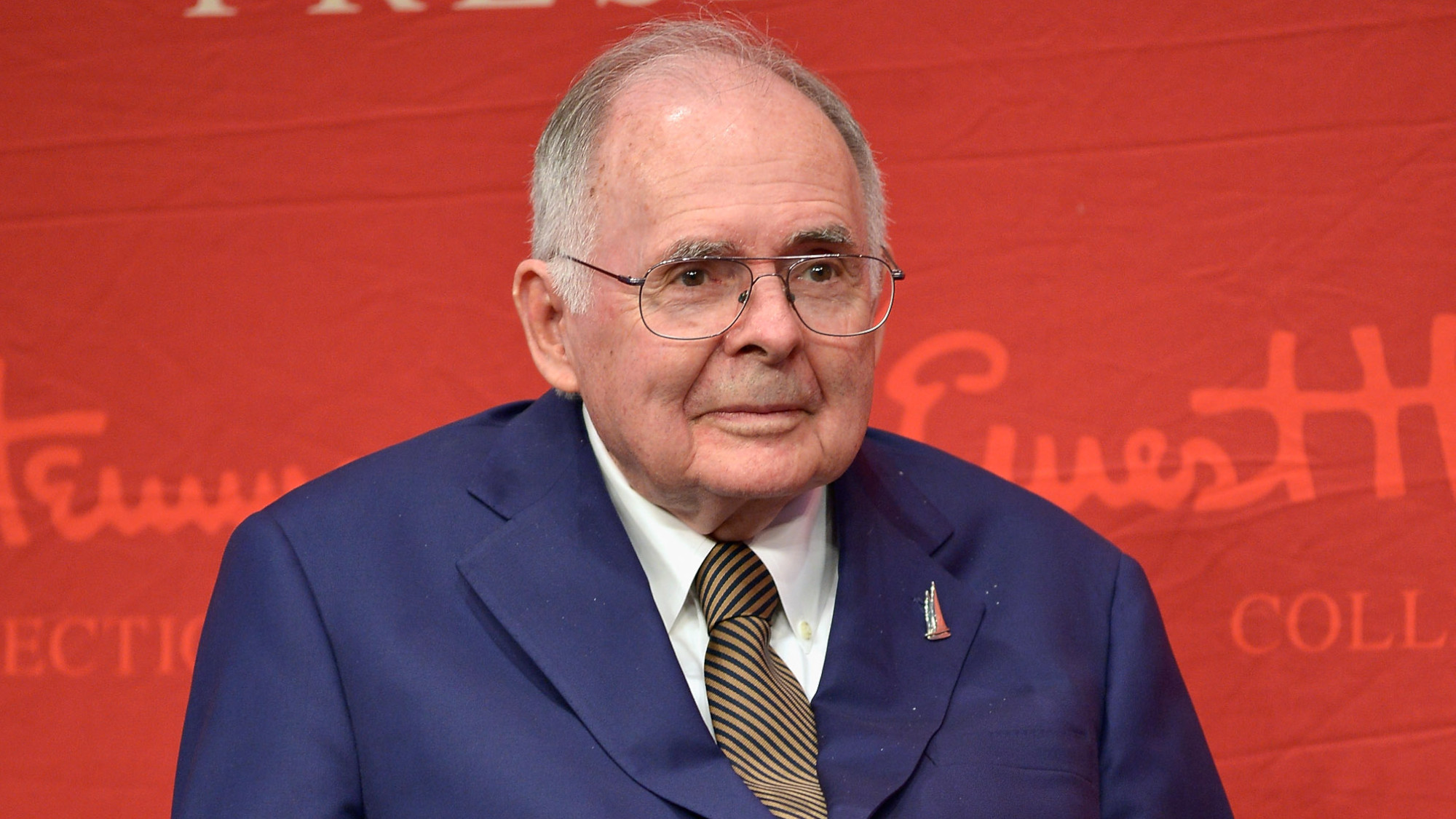Jörg Haider
The Austrian politician who led the far Right
A free daily email with the biggest news stories of the day – and the best features from TheWeek.com
You are now subscribed
Your newsletter sign-up was successful
The Austrian politician who led the far Right
Jörg Haider
1950–2008
The Week
Escape your echo chamber. Get the facts behind the news, plus analysis from multiple perspectives.

Sign up for The Week's Free Newsletters
From our morning news briefing to a weekly Good News Newsletter, get the best of The Week delivered directly to your inbox.
From our morning news briefing to a weekly Good News Newsletter, get the best of The Week delivered directly to your inbox.
Jörg Haider, who died in a car accident at 58, was considered among the most reactionary mainstream political figures of modern times. As the leader of Austria’s ultraconservative Freedom Party, the handsome, athletic, and charismatic Haider was an unapologetic xenophobe who opposed efforts to unify Europe and often praised the Nazis. Nonetheless, his political movement helped end the unquestioned pre-eminence of Austria’s two main political factions, the conservative People’s Party and the liberal Social Democrats.
“Haider’s quest for respectability and power stemmed from the belittling experience of his parents,” said the London Times. Both became Nazis in 1929, “when it was still illegal to do so in Austria.” During Hitler’s reign, his father served in the Wehrmacht and his mother was a member of Hitler’s League of German Maidens. Following the war, they were reduced to menial labor; his father became a grave digger and his mother worked in a retirement home. After graduating from law school, Haider joined the Freedom Party and, in 1979, was elected to parliament, becoming party leader seven years later. “Until then, the Freedom Party had been a strange hybrid, made up of liberals, aging Nazis, and pan-German nationalists.”
That changed under the “photogenic and perpetually tanned” Haider, said The Washington Post. Brash and eloquent, he deployed “his fiery rhetoric against immigrants, the European Union, and the euro.” An ultranationalist, he blithely called Poles “car thieves,” Yugoslavs “burglars,” and Russians “experts in blackmail and mugging.” Haider repulsed many by embracing the Third Reich, once lauding Hitler’s “orderly employment program” and extolling SS veterans as “decent men of character.” But his fierce nationalism touched a chord: In 1999, the Freedom Party won 27 percent of the national vote, making it the second largest party in Austria’s governing coalition. Within months, however, “an international backlash and mass protests in Vienna” forced Haider to step down. He retreated to his 38,000-acre estate in Carinthia, which an uncle had bought “at a bargain price after its Jewish owners were forced to flee in 1938.”
As his party splintered into competing factions in 2005, Haider formed the somewhat more moderate Alliance for the Future of Austria, which two weeks ago won 11 percent of the national vote. Haider was killed this weekend near the city of Klagenfurt when his Volkswagen Phaeton crashed into a pillar and overturned after he tried to pass another car at almost 90 mph.
A free daily email with the biggest news stories of the day – and the best features from TheWeek.com
-
 The ‘ravenous’ demand for Cornish minerals
The ‘ravenous’ demand for Cornish mineralsUnder the Radar Growing need for critical minerals to power tech has intensified ‘appetite’ for lithium, which could be a ‘huge boon’ for local economy
-
 Why are election experts taking Trump’s midterm threats seriously?
Why are election experts taking Trump’s midterm threats seriously?IN THE SPOTLIGHT As the president muses about polling place deployments and a centralized electoral system aimed at one-party control, lawmakers are taking this administration at its word
-
 ‘Restaurateurs have become millionaires’
‘Restaurateurs have become millionaires’Instant Opinion Opinion, comment and editorials of the day
-
 Catherine O'Hara: The madcap actress who sparkled on ‘SCTV’ and ‘Schitt’s Creek’
Catherine O'Hara: The madcap actress who sparkled on ‘SCTV’ and ‘Schitt’s Creek’Feature O'Hara cracked up audiences for more than 50 years
-
 Bob Weir: The Grateful Dead guitarist who kept the hippie flame
Bob Weir: The Grateful Dead guitarist who kept the hippie flameFeature The fan favorite died at 78
-
 Brigitte Bardot: the bombshell who embodied the new France
Brigitte Bardot: the bombshell who embodied the new FranceFeature The actress retired from cinema at 39, and later become known for animal rights activism and anti-Muslim bigotry
-
 Frank Gehry: the architect who made buildings flow like water
Frank Gehry: the architect who made buildings flow like waterFeature The revered building master died at the age of 96
-
 R&B singer D’Angelo
R&B singer D’AngeloFeature A reclusive visionary who transformed the genre
-
 Kiss guitarist Ace Frehley
Kiss guitarist Ace FrehleyFeature The rocker who shot fireworks from his guitar
-
 Robert Redford: the Hollywood icon who founded the Sundance Film Festival
Robert Redford: the Hollywood icon who founded the Sundance Film FestivalFeature Redford’s most lasting influence may have been as the man who ‘invigorated American independent cinema’ through Sundance
-
 Patrick Hemingway: The Hemingway son who tended to his father’s legacy
Patrick Hemingway: The Hemingway son who tended to his father’s legacyFeature He was comfortable in the shadow of his famous father, Ernest Hemingway